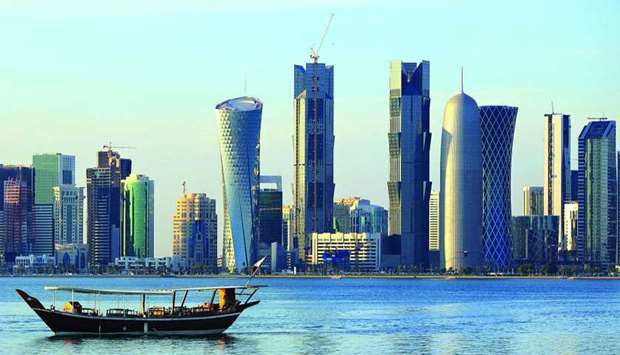*Review sees 'increased transactional volume and market corrections' across all sectors in Qatar
Real estate transactions worth QR17bn were signed in Qatar during the first nine months of 2018 indicating a 14% rise in volume compared to same period last year, regional consulting firm ValuStrat said in a new review.
ValuStrat reported “increased transactional volume and market corrections” across all sectors in Qatar and expects “increasing affordability and quality of delivered properties could reinvigorate the market.”
Qatar’s residential ValuStrat Price Index (VPI), where a 100-point base was set in first quarter (Q1) 2016, stood at 75.8 points. Residential unit prices fell because of rising supply, subdued population growth and increased borrowing costs.
Countrywide residential capital values declined by 19.5% compared to the same quarter in 2016, 10.7% compared to Q3, 2017 and 2.2%, compared to Q2, 2018.
Weighted average value of a residential unit stood at QR8,434 per sqm. More specifically, apartments were QR12,208 per sqm and villas stood at QR6,555 per sqm, ValuStrat noted.
Capital values of freehold apartments fell by 3.2% on a quarterly basis, while villas fell by 2.2% quarter-on-quarter (q-o-q).
Villas in certain clusters of Al Wakrah/Wukair, West Bay Lagoon, Al Dafna and Al Thumama experienced declines of up to 8% quarterly, ValuStrat said.
Citywide residential asking rents declined 12.4% over the past 12 months and 3.9% since the first quarter of 2018. Increasing supplies continue to put downward pressure on apartment rents, as it got reduced by 10.9% on an annual basis and 4.2% quarterly.
Similarly, ValuStrat said “corrections have been observed” in the villa market, as rents declined by 20.5% compared to the same quarter in 2017 and 2.3% q-o-q. In Q3, 2018, gross yields averaged 4.9% for all residential unit types.
“Villa yields this quarter fared better compared to apartments, as rental rates dropped at a slower rate than that of capital values. Areas such as Ain Khaled, Abu Hamour, Al Thumama, Al Dafna, Duhail and Al Wakrah saw average gross yields to increase to 4% from 3.6% since 2017. For apartments, The Pearl experienced a rise in yield from 6.3% to 6.5% over a period of one year,” said Anum Hasan, ValuStrat Market Research analyst.
Residential supply reached 288,735 units as of Q3, 2018 with the delivery of 635 apartments and villas in Al Mansoura, Lusail, Al Thumama/Al Wukair, Umm Salal and Al Sakhama.
Projected completions for 2018 have been reduced from 12,800 units to 10,600 due to delayed deliveries.
With the addition of 26,000 sqm gross leasable area (GLA) during Q3, 2018, office supply reached a total of 4mn sqm of leasable space. Due to delays in construction, projected supply has been reduced to 600,000 sqm from 720,000 sqm.
“Market conditions continue to favour tenants as office asking rents dropped 16.8% compared to 2017 and 3% against Q2 of this year,” the review showed.
According to ValuStrat, the third quarter of this year ended with 26,170 hotel rooms as Al Najada Doha Hotel Apartments and Souq Al Wakrah Hotel was unveiled. Visitor arrivals reached 1.2mn by August 2018, down by 28% y-o-y.
Retail stock amounted to 1.8mn sqm GLA by the end of Q3, 2018. Performance indicators in the mall sector started to deteriorate as footfall has been observed to reduce in relatively older super-regional and regional malls.
In addition, rents in street retail have seen reductions of up to 15% in areas outside of Doha. Median monthly rents for line shops (up to 500 sqm) in organised retail ranged from QR260-QR420 per sqm.
Industrial space was estimated at 16.5mn sqm as of Q3, 2018, anticipating a 25% increase in supply by 2019. Addition of rent-regulated warehouses is putting downward pressure on rents in Doha Industrial Area.
Average asking rent for cold storage leased on per unit basis ranges from QR10,000 to QR15,000 for sizes of 50-80 sqm.
ValuStrat Qatar general manager Pawel Banach said, “Market corrections continue this quarter as rents and prices continue to fall due to oversupply prevalent across all sectors. It is expected that increasing affordability and quality of delivered properties could reinvigorate the market.
“As we approach the end of 2018, we expect the market to reveal additional investment opportunities due to various regulatory incentives announced by the government to attract foreign investment. This along with the completion of infrastructure developments to augment World Cup preparation is projected to aid Qatar’s real estate horizon to broaden in the medium term.”


